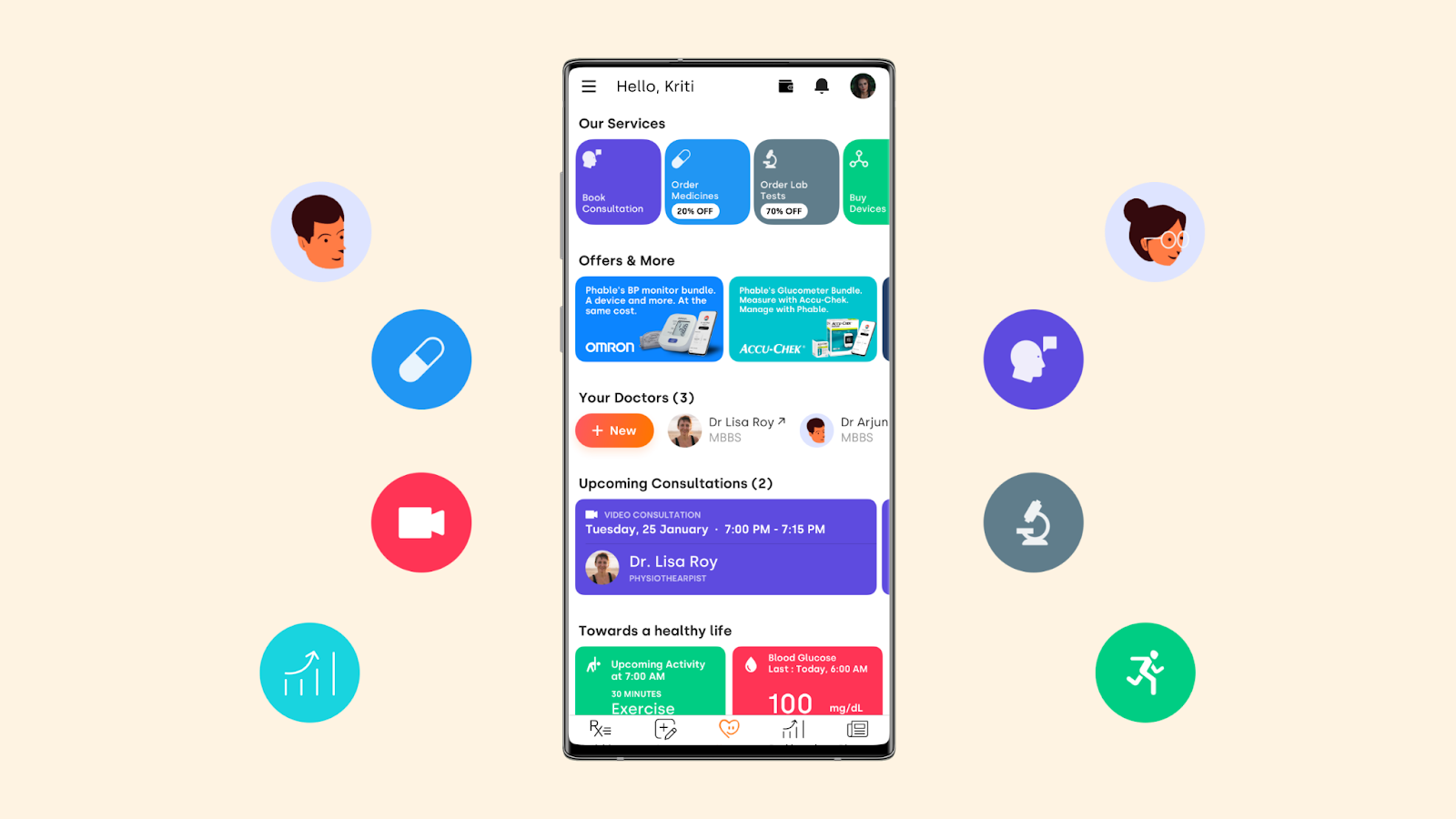Built With MongoDB: Phable

Hundreds of millions of people across India face chronic diseases. India has the second-highest number of diabetics in the world, and citizens with high blood pressure, thyroid conditions, and other chronic ailments are underserved in the country because there’s no robust system in place governing how the treatment and diagnosis will be handled. Given the lack of a proper infrastructure, diseases slip under the radar because they’re not caught early on.
That’s where Phable comes in.
According to TechCrunch, "Phable has created a more transparent and real-time communication channel that allows a doctor to nudge their patients to take their medicine on time, and make any necessary changes to the lifestyle or medication cycle, or request a follow-up appointment. The app itself can be used for tele-consultation, the demand for which has skyrocketed in recent quarters as coronavirus forced people to stay indoors.”
The company, which has raised $12 million in funding from India’s Manipal Hospitals and venture capital and investment management firm SOSV, reaches 350,000 patients, 5,000 doctors, and a staff of 100 people across Chennai and Bangalore. In this edition of #BuiltWithMongoDB, we talk with Phable’s Creative and Marketing Consultant Ganesh Chandrashekar and Engineering Manager Venkatesh Walajabad about what drives their business.
MongoDB: What is the Phable product offering right now?
Ganesh: We currently have two products: patient facing, and doctor facing.
For patients, we give them a sense of their everyday health and handhold them through the process of understanding their first symptoms, getting prescribed a treatment plan, and recording their ongoing lifestyle changes. We help map and manage those lifestyle changes at a fundamental level, while giving them intelligent insights to help them make small tangible changes to everyday habits. We also connect them to doctors in a more real-time manner, so doctors have deep visibility into a patient’s health, and the patients can get personalized recommendations from doctors.
While our focus is on preventive and personalized care, we have some value-added services that ease our users’ journey. They can order medicines from the app, schedule video consultations with doctors, and request lab tests directly. We’re building a broader health tech ecosystem where we are able to partner with the relevant companies — including some leading names in health device manufacturing, insurance companies, and medicine providers.
For doctors, we’ve built a full product suite with a decision support system and EMR. So we’re able to help them digitize their practice, prioritize and process patient data, simplify clinic management and build better relationships with their patients.
MongoDB: Has COVID-19 impacted product adoption or any of the features that are being used?
Ganesh: Our growth has been in parallel with the pandemic over the past year. The pandemic gave a sense of urgency, and put the spotlight back on healthcare and understanding health at a more granular level. A lot of the new features we have — especially virtual doctor consultations — were developed at a breakneck speed to cater to users at home during the pandemic.
MongoDB: You released the video consultations really quickly, especially given the uncertainty surrounding COVID-19 in 2020. How did you approach that from the technical side?
Ventkatesh: Because there were a lot of unknowns in building this, we wanted to experiment and release in certain phases so we could gather feedback and then add features on top of that.
We are quite nimble at Phable as a whole: we started with consultations, moved on to an ecommerce platform, and then added wallet features. Similarly, for the video consultation product, we released in chunks — experimenting with users, analyzing their usage, and then shipping the feature more widely.
MongoDB: How did the team decide to build with MongoDB?
Venkatesh: The decision for MongoDB happened right from Day 1, because the team wanted to go with a MEAN [MongoDB, Express.js, AngularJS, and Node.js] and MERN [MongoDB, Express.js, ReactJS, and Node.js] stack. Initially we used the community version, and then early last year we shifted to MongoDB Atlas. We wanted to use all the clustering capabilities and backup support, in addition to the profiling and detection of slow queries. We use a lot of those features to figure out where our bottlenecks are.
We got some credits through MongoDB for Startups, but MongoDB Atlas is still on the more expensive side for us. Even though it is a little expensive, the advantages that we get from MongoDB Atlas far outweigh the cost.
We use AWS for our server needs, and we have a fair bit of integration between AWS and MongoDB via VPC peering so all data is more secure, in addition to the encryption MongoDB provides.
MongoDB: How is your engineering team structured?
Venkatesh: There are 18 engineers on the team — and we’re trying to add more so we can launch more features and expand into new markets. Readers take note: We are hiring engineers for our India offices!
MongoDB: How has scaling with MongoDB been, especially given how much you've grown during COVID_19?
Venkatesh: MongoDB Atlas takes care of all the autoscaling for us. We worked closely with a consultant to figure out what minimum and maximum instances we need for our clusters, and then we rely on MongoDB to do the autoscaling. During a calmer period, MongoDB Atlas scales down perfectly well and reduces the costs; in a high-growth period, it scales up to accommodate for the traffic. We love that it automanages things so we don’t have to worry about it day to day.
Because MongoDB’s features take care of most of the work, we don’t need a dedicated person to oversee this — we plan a few months ahead, and then we let MongoDB take care of the work.
Looking to build something cool? Get started with the MongoDB for Startups program.